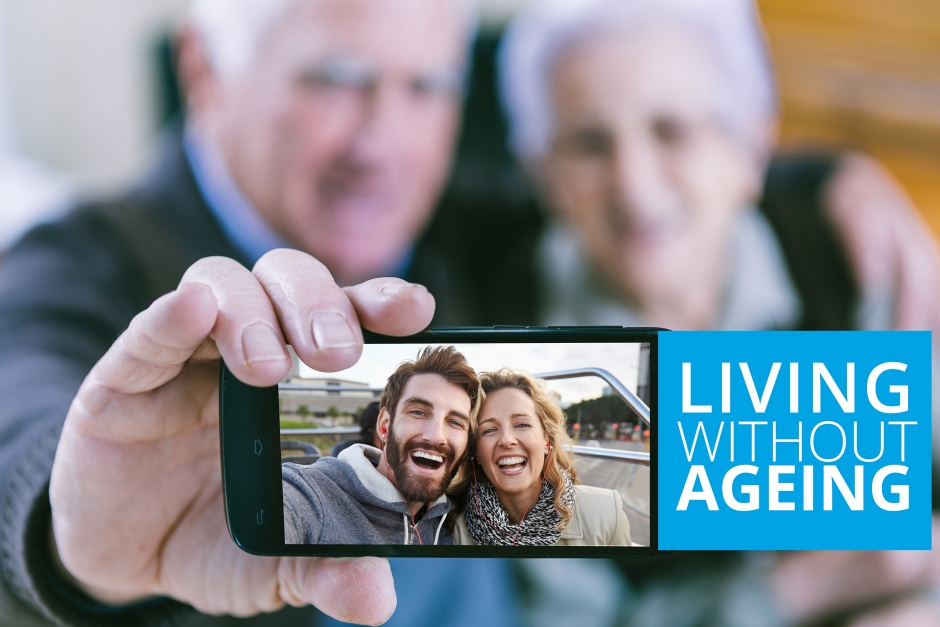According to Dr John Demartini, the way that we look is intrinsically linked with the way we think and feel
Recently somebody asked me about ageing. He asked me how we slow the ageing process and whether it’s possible with just a frame of mind to live longer. Now, it’s not that we can go on and on and live forever, but I do think it’s worth exploring what part the way you think, the relationship you have with the outside world has with your body. Because your mind is the interface with your body – and for something that nobody knows what it is, the mind has a powerful effect on your physiology. It’s all to do with the way you live and perceive the world.
It’s helpful to think of the mind in this way: we have two different aspects to our psyches and our imaginations.
We call those aspects future and past. We can live in our imaginations with intentions for the future. We can live in our imaginations with our retentions and memories of the past. The thing is, once we add time into our mind we create the Arrow of Time. And with the Arrow of Time comes a force in the universe known as entropy, the tendency to break down.
Now, here’s a way to think about this. Any time we’re holding onto memories of the past, or holding onto fantasies of the future, nightmares of the past, fear of the future, guilt about the past, shame of the past then we’re thinking entropically. We’re thinking in time. And when we’re living in the time zone, we’re automatically in the ageing process.
So what’s to be done? Well, once we actually get really present and set really balanced goals that are not emotionally distracting, we get present and we go into a zone where there’s no time. We’re not hurtling ourselves forwards or throwing ourselves backwards. We’re here, in the now. Deepak Chopra said it nicely, when he said if there’s a timeless mind there’s an ageless body.
Now, how does it work? Again, a way to look at it is to say the thing that we’re doing when we store our memories and imaginations is we’re storing emotional illusions. I’ll give you an example. If you’re infatuated with somebody, they occupy space and time in your mind. You store them in a memory and you create a fantasy about being with them again possibly, if you’re infatuated. Again past and future. If you resent somebody and you put them in the pit, again they occupy space and time in your mind, and you store the memory of that resentful experience and you create a fantasy of them being something different next time or you hold onto a memory and fear the future.
As long as you’re holding memory and imagination, as long as you’re storing these emotions in those states, you’re ageing. We call it emotional baggage. But the second we actually get to a point where we don’t see resentment of the past, we don’t see infatuation of the future, but we balance our equation and have equanimity within ourselves and equity between ourselves and others, and have appreciation and love for the person. We dissolve the fabric of space time in our minds and we clear out our memory and imagination and just become present.
In that state of gratitude and love we have a timeless mind and ageless body, we are present. That’s where we actually slow down the ageing process or stop the ageing process in those moments.
So the more moments we have of gratitude and love for ourselves and others that we slow down the ageing process. The more we have emotional baggage, the more we speed up the ageing process.
We’ve all had moments of extreme emotions and looked in the mirror the next day and can see the ageing going on right there.Now, the thing is, this isn’t just talk about ideas and thoughts and psyche. There’s neurophysiology to it.
The fact is that when you are in that state of balance, you aren’t producing the brain chemistry that’s associated with stress. And it’s that brain chemistry that releases adrenalin, which over time is so damaging to your body tissues, and free radicals, which damage the RNA in your cells, actually physically shortening your life.
The key is to be present and to be purposeful and to be grateful. So how do you do that?
The answer comes through your values, of being in tune with them and living according to them. When you live by your highest values, you have more resilience to adapt to a pair of opposites and you have more objectivity and more even-mindedness and you’re more present. When you’re living by lower values, because you’re unfulfilled you’ll tend to want to avoid pain and seek pleasure – and that way you get into time. We then store those events and thoughts as memory and imagination. There’s the stress that automatically ages our body.
So our physiology is creating symptoms as a feedback mechanism to try to get us back to objectivity and to live by our highest values and be inspired by our life. I always say symptoms can be our friends if they’re interpreted through meaning and they can be our enemies if we keep striving for a one-sided world and not appreciate the balanced life has to offer.
So much good comes from living with your highest values. It’s finding a way to do that well that’s the secret.




